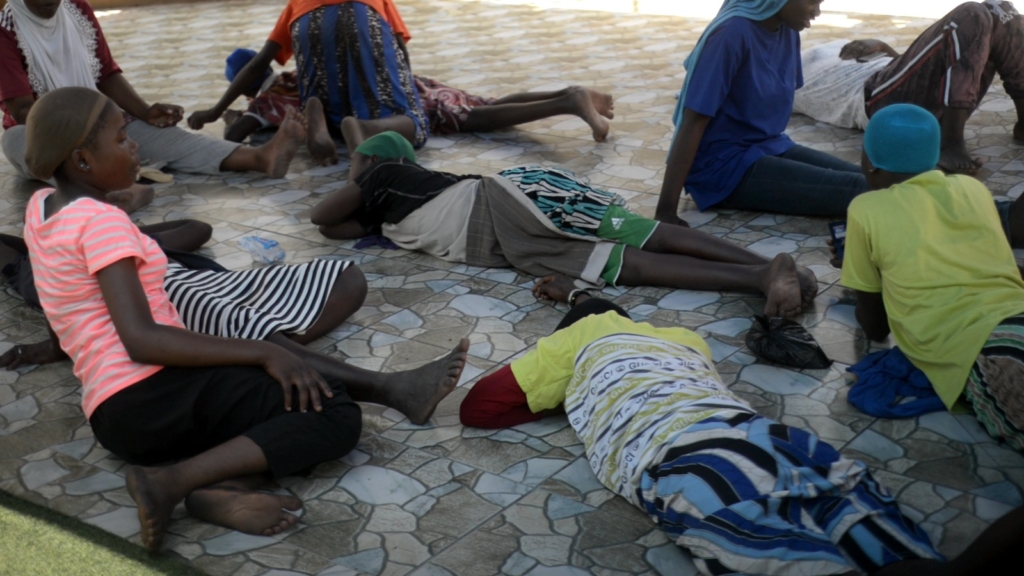A social service organisation, Safe-Child Advocacy, is raising alarm over the persistent plight of children on the streets of Kumasi, deprived of education, socialization, and developmental opportunities.
These children face abuse and inhumane treatment on the streets without guidance, and are imprisoned by a cycle of poverty and a quest to survive.
Safe-Child Advocacy is urging the government and allied institutions to demonstrate political will in enforcing existing laws to rescue these vulnerable young populations.
Reflecting on International Day for Street Children, Safe-Child Advocacy engages victims of streetism, and stakeholders, insisting on intentional action and enforcement against child streetism.
For over two years, Naima Iliasu, an ambitious young woman, abandoned life at home in Tamale in the Northern region of Ghana to face life on her own on the streets of Kumasi.
Contrary to her expectations, the quest to escape poverty was confronted with a harsh reality that only put her at risk of being abused or worse.
The constant fear of sleeping in front of the open along the roadside in Adum is a persistent show of her daily struggle for basic needs.
Naima says her street life is an experience of a battle of hunger and harm.
“Living on the street is difficult. Where to sleep and what to eat is not easy to come by. You have no one to guide or protect you so you can be influenced by others to engage in armed robbery and prostitution as a choice.
“Where I lived was not safe and I live being afraid that something can happen to me. Sometimes someone might come around to rape and you might not be strong to fight back. Safe-Child Advocacy is now supporting me, providing for my need and taking me through dress-making training, “she said.
Naima is now promised a new future of becoming a dressmaker, with support from Safe-Child Advocacy’s skills training intervention.
However, on the streets of Kumasi, at least over 20,000 young people who are mostly girls between 8 and 18 years old reel and roam to fend for themselves.
Young girls are turning into mothers and sex workers, young boys are becoming armed robbers and infants are put at risk of death from street life.
Niama’s story speaks to the urgent need for support for those living on the margins of streetism.
Rehabilitation Officer at Safe-Child Advocacy, Erica Adutwumwaa Konadu, reveals that these young people who are languishing on the streets have been forced to turn breadwinners.
“They fend for themselves and their families see them as breadwinners which is supposed to be the other way around. We are always on the street offering education, but they see what they do on the street and the menial jobs as profitable,” she said.
Director of Safe-Child Advocacy, Rev Sister Olivia Umoh, has observed strong family resistance as the gloomy side of the efforts to assist young street and vulnerable children.
In commemoration of the 2025 International Day for Street Children, under the theme: “The Power of Participation”, Safe-Child Advocacy is empowering children to be active participants in decisions that affect them.
The social service organization is reaching out to over one hundred street children daily, commemorating the occasion while raising awareness with street campaigns and stakeholder engagements.
Reverend Sister Olivia Umoh is admonishing the government and enforcement agencies to exhibit the political will and be intentional in action to rid the streets of children.
She believes the government can inspire social organizations to amplify their roles in contributing to saving the lives and future of young people.
“We want to call on the government of Ghana, as we celebrate International Day for Street Children 2025. Government should be intentional and serious, it just needs the political will. If any of our beautiful laws and regulations are enforced, this situation will be mitigated. A situation where there are no enforcement to the laws that we enact ourselves, then there is little belief that the situation will get better. The government should start using the power it has to address this situation,” she said.
About SCA
Safe-Child Advocacy (SCA) under the Catholic Archdiocese of Kumasi has been concerned with the plight of children, youth, and women in street and other vulnerable situations.
The organization provides various services towards reintegration and rehabilitation for victims of social inequalities in Kumasi and Ghana through skills training, formal education support, counselling and enterprise development.
DISCLAIMER: The Views, Comments, Opinions, Contributions and Statements made by Readers and Contributors on this platform do not necessarily represent the views or policy of Multimedia Group Limited.

